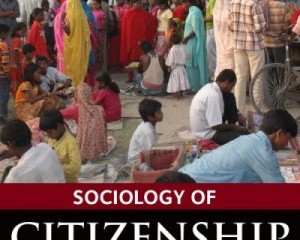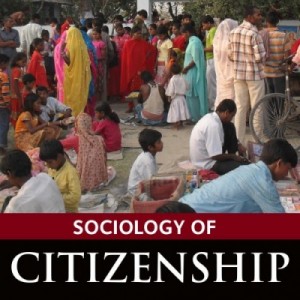Political theorists, sociologists and anthropologists are increasingly open to the idea that citizenship goes beyond the legal status conferred by states upon individuals in a national political community. The contributors to this series will focus on the concrete, empirical ways in which people make meaning of citizenship and the manner in which they forge and imagine membership in the political community. Contributors will draw on their on-going research in different parts of the world, including South Asia, the Middle East, Eastern Europe, Africa and Latin America.
Citizenship is a contested concept. Some scholars have suggested that citizenship be seen in terms of providing a ‘room to manoeuvre’ for people to secure their livelihoods. Others highlight the need to think about citizenship in terms of political agency, embedded in everyday life. Others associate the conception of the citizen with good neighbourliness, or emphasise that citizenship should be analysed in terms of people’s aspirations to live in society, in a civil way. Some observers dispense with the relevance of the analytical category of citizenship altogether.
These interpretations point to the need to conceptualise citizenship as a sociological process. This blog series provides a forum for scholars to think about the practices through which people forge membership in the political community. These practices entail collaborations and contests among people or between people and the institutions that govern them. Contributors to this series will provide us with nuanced insights into these collaborations and contests.
With the role of the nation-state in political, economic and social life undergoing a major transformation in most parts of the world, and scholars coming to terms with overlapping and multiple sovereignties, these discussions on citizenship and empirically informed observations on forging and imagining the political community are more relevant than ever.

Book Review: ‘Patronage as Politics in South Asia’ by Anastasia Piliavsky (ed.)

Moving Beyond Movements: Exploring paths of everyday citizenship in urban South Africa

Between Nation-State and Ummah’s Appeal: The contradictions of Islamism in contemporary India and Bangladesh

Afropolitanism: Global citizenship with African routes

Questioning traditional citizenship: memory, identity and collective action in Chile

Book Review: ‘Patronage as Politics in South Asia’, edited by Anastasia Piliavsky


